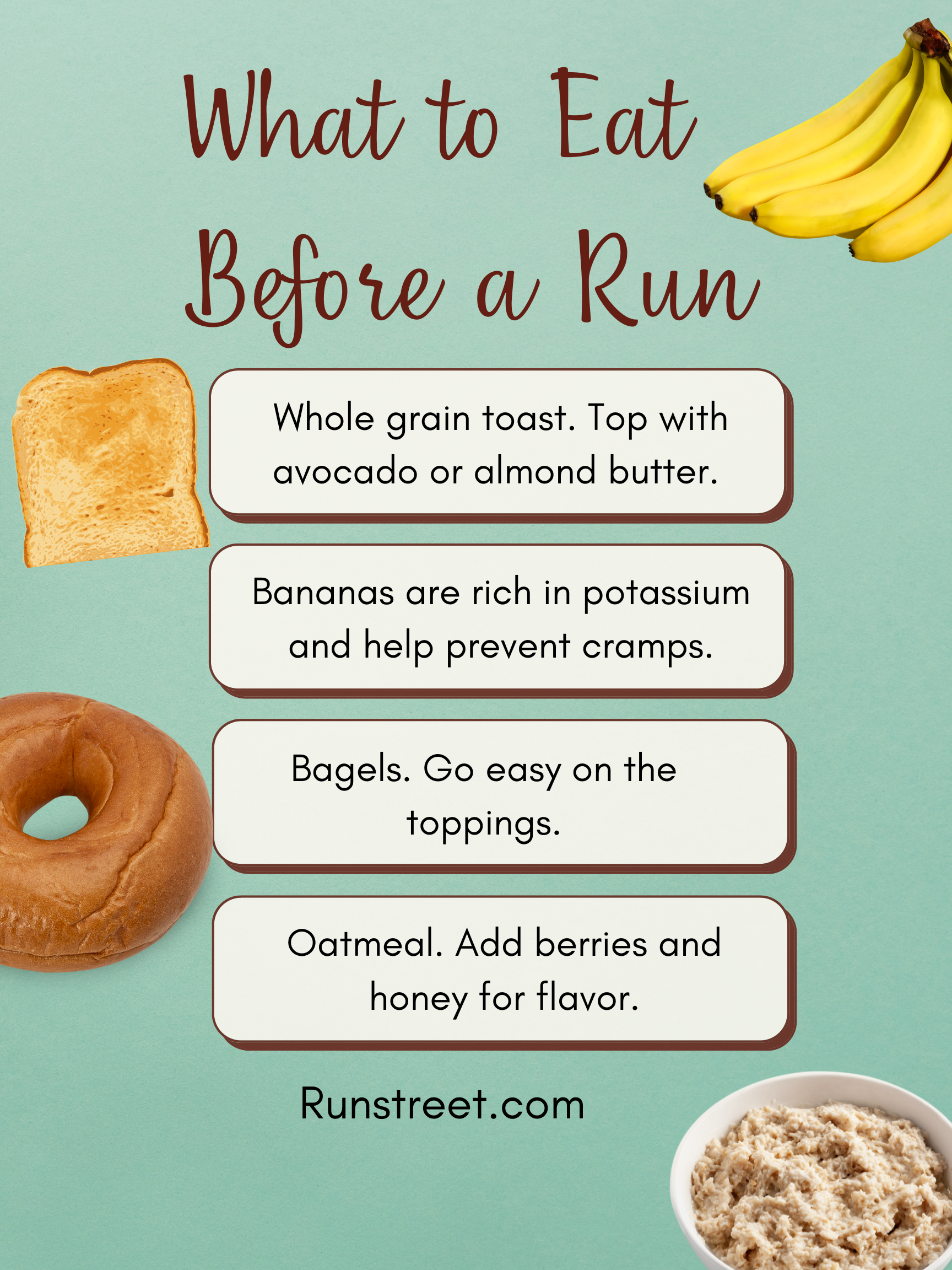Looking to maximize your running performance? Look no further than your plate. Fueling your body with the right foods is essential for a successful run. Whether you’re a seasoned athlete or just starting out, knowing what to eat can make a huge difference in your performance and overall well-being. In this article, we will explore the best foods to eat before, during, and after your run, giving you the energy and nutrients you need to reach your goals. So, lace up your running shoes and get ready to discover the perfect fuel for your next jog.
Best Foods for Fueling Your Run
Running requires a significant amount of energy, and fueling your body properly before, during, and after your runs is crucial for optimal performance. In order to support your running goals, it’s important to understand the role of different nutrients, such as carbohydrates, proteins, fats, and hydration, as well as specific foods that can provide you with the necessary energy and nutrients. In this comprehensive article, we will explore the importance of carbohydrates, proteins, fats, and hydration in running, as well as highlight specific runner-friendly foods like bananas, oatmeal, berries, almonds, Greek yogurt, and sweet potatoes.
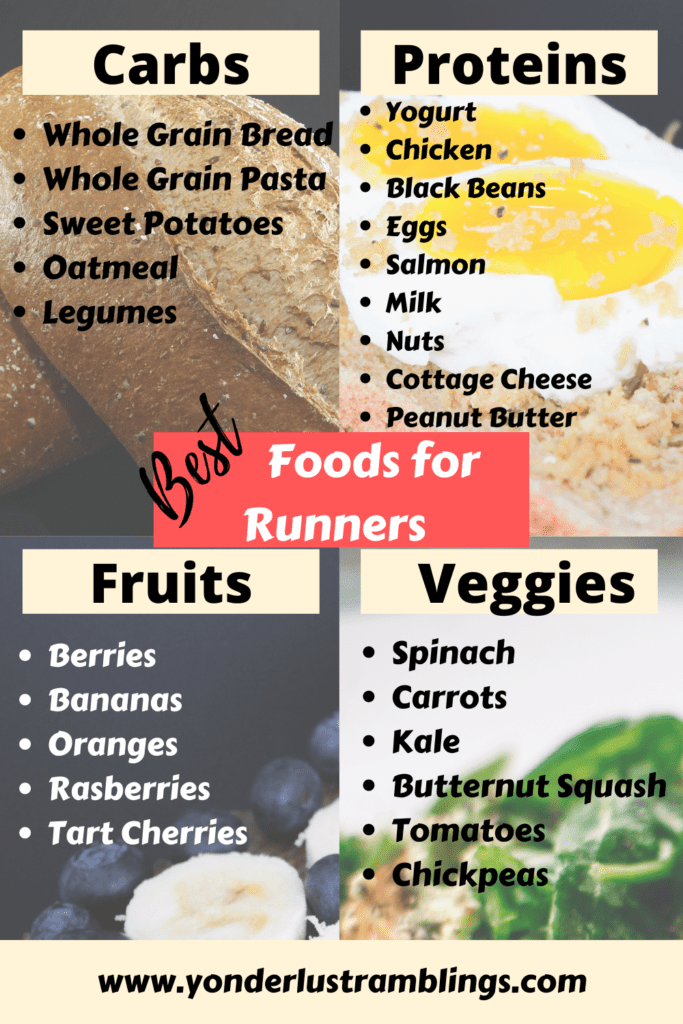
This image is property of yonderlustramblings.com.
Carbohydrates
The Role of Carbohydrates in Running
Carbohydrates are the body’s primary source of energy and play a vital role in running. When you consume carbohydrates, they are broken down into glucose, which is stored in your muscles and liver as glycogen. During a run, your body relies on glycogen for fuel, especially during longer, endurance runs. Consuming enough carbohydrates before your run ensures that your glycogen stores are adequately replenished, allowing you to perform at your best.
Pre-Run Carbohydrate Strategies
To ensure you have enough energy for your run, it’s important to consume a carbohydrate-rich meal or snack before you lace up your running shoes. Aim to eat a balanced meal that includes complex carbohydrates, such as whole grains, brown rice, or whole-wheat pasta. These slow-digesting carbs will provide a sustained release of energy, helping to prevent a sudden drop in blood sugar levels during your run. If you prefer a snack, options like a banana or a slice of toast with peanut butter can also provide easily digestible carbohydrates to fuel your run.
During-Run Carbohydrate Strategies
For longer runs or races lasting longer than an hour, it may be necessary to consume additional carbohydrates during your run to sustain your energy levels. This can be done through energy gels, sports drinks, or easily digestible snacks like energy bars or dried fruit. Experiment with different options during your training to find what works best for you, and be sure to stay hydrated while taking in carbohydrates during your run.
Post-Run Carbohydrate Strategies
After a run, it’s important to replenish your glycogen stores by consuming carbohydrates. Within 30 minutes to an hour after your run, aim to have a carbohydrate-rich snack or meal. This will kickstart the recovery process, promote muscle repair, and prepare your body for your next run. Good post-run carbohydrate options include a fruit smoothie, a bowl of oatmeal, or a sweet potato loaded with nutritious toppings.
Proteins
The Role of Proteins in Running
Proteins are essential for the growth, repair, and maintenance of tissues in the body, including muscles. When it comes to running, consuming an adequate amount of protein is crucial for muscle recovery and preventing muscle breakdown. Protein also plays a role in the synthesis of enzymes, hormones, and red blood cells, which are all important for optimal running performance.
Pre-Run Protein Strategies
While carbohydrates should be the main focus of your pre-run meal or snack, incorporating some protein can be beneficial. Protein helps slow down the digestion of carbohydrates, resulting in a more sustained release of energy. Including a lean source of protein such as chicken, fish, tofu, or Greek yogurt in your pre-run meal can provide the necessary amino acids to support muscle recovery and improve endurance.
During-Run Protein Strategies
Unlike carbohydrates, protein is not typically a primary fuel source during a run. However, consuming a small amount of protein during ultra-endurance races or extremely long runs can help minimize muscle breakdown and assist in recovery. This can be achieved through protein-packed energy bars or drinks formulated specifically for endurance athletes.
Post-Run Protein Strategies
After a run, consuming protein is essential for muscle repair and recovery. Aim to have a protein-rich snack or meal within an hour of finishing your run. Good post-run protein options include lean meats, fish, eggs, dairy products, legumes, or protein shakes. Combining protein with carbohydrates in your post-run meal or snack can further enhance muscle recovery and glycogen replenishment.
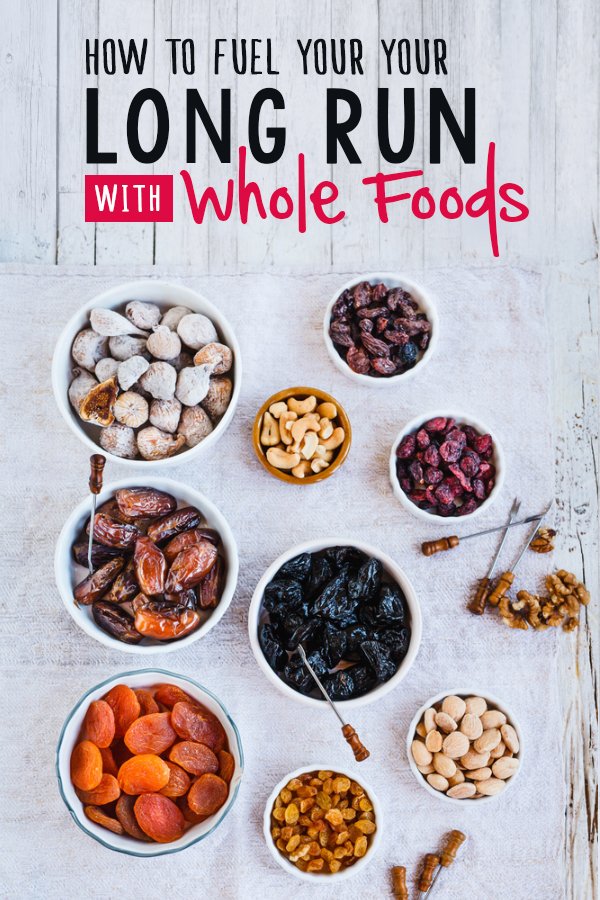
This image is property of www.runtothefinish.com.
Fats
The Role of Fats in Running
While carbohydrates are the primary fuel source for running, fats also play a significant role in providing sustained energy during longer, lower-intensity runs. Fat is a concentrated source of energy, providing more than double the energy per gram compared to carbohydrates or proteins. Additionally, fats help insulate the body, protect vital organs, and aid in the absorption of fat-soluble vitamins.
Pre-Run Fat Strategies
Consuming a moderate amount of healthy fats before a run can provide a slow and steady source of energy, especially if you’re planning a long, slow-paced run. Including sources of monounsaturated fats like avocados, olive oil, or nuts in your pre-run meal or snack can help keep you fueled throughout your run. However, it’s important not to consume excessive amounts of fat immediately before a run, as it can cause digestive discomfort.
During-Run Fat Strategies
During a run, your body primarily relies on carbohydrates for energy. However, for runs lasting for several hours, having a small amount of fat in your snacks or energy gels can help provide a more sustained release of energy. Look for energy gels or bars that contain a balanced combination of carbohydrates, proteins, and fats to fuel your longer runs effectively.
Post-Run Fat Strategies
While carbohydrates and proteins should be the main focus of your post-run nutrition, including some healthy fats can aid in the absorption of fat-soluble vitamins and provide additional satiety. Add a tablespoon of nut butter or a handful of nuts to your post-run meal or snack for a dose of healthy fats. However, moderation is key as fats are calorie-dense, and excessive consumption can hinder your overall nutritional needs.
Hydration
The Importance of Hydration in Running
Staying properly hydrated is essential for optimal running performance. Water is involved in many physiological processes, including regulating body temperature, transporting nutrients, and lubricating joints. When you run, you lose fluids through sweat, and it’s crucial to replace those fluids to prevent dehydration, which can lead to decreased performance, muscle cramps, and even heatstroke.
Pre-Run Hydration Strategies
To ensure you start your run properly hydrated, it’s essential to drink enough fluids in the hours leading up to your run. Aim to consume at least 16-20 ounces of water or a sports drink 2-3 hours before your run. If your run is early in the morning, consider drinking 8-10 ounces of water as soon as you wake up to kickstart hydration.
During-Run Hydration Strategies
During your run, it’s important to replace fluids lost through sweat to avoid dehydration. For runs lasting less than an hour, water is usually sufficient. However, for longer runs or runs in hot and humid conditions, consider consuming a sports drink to replace electrolytes lost through sweat. Experiment with different hydration strategies during your training to determine what works best for you.
Post-Run Hydration Strategies
After your run, rehydrating is crucial for recovery and replenishing the fluids you lost during exercise. Aim to drink 16-24 ounces of water or a sports drink within an hour of finishing your run. If you’re struggling to drink enough fluids, incorporating hydrating foods into your post-run snack or meal, such as watermelon or cucumbers, can help boost your hydration levels.
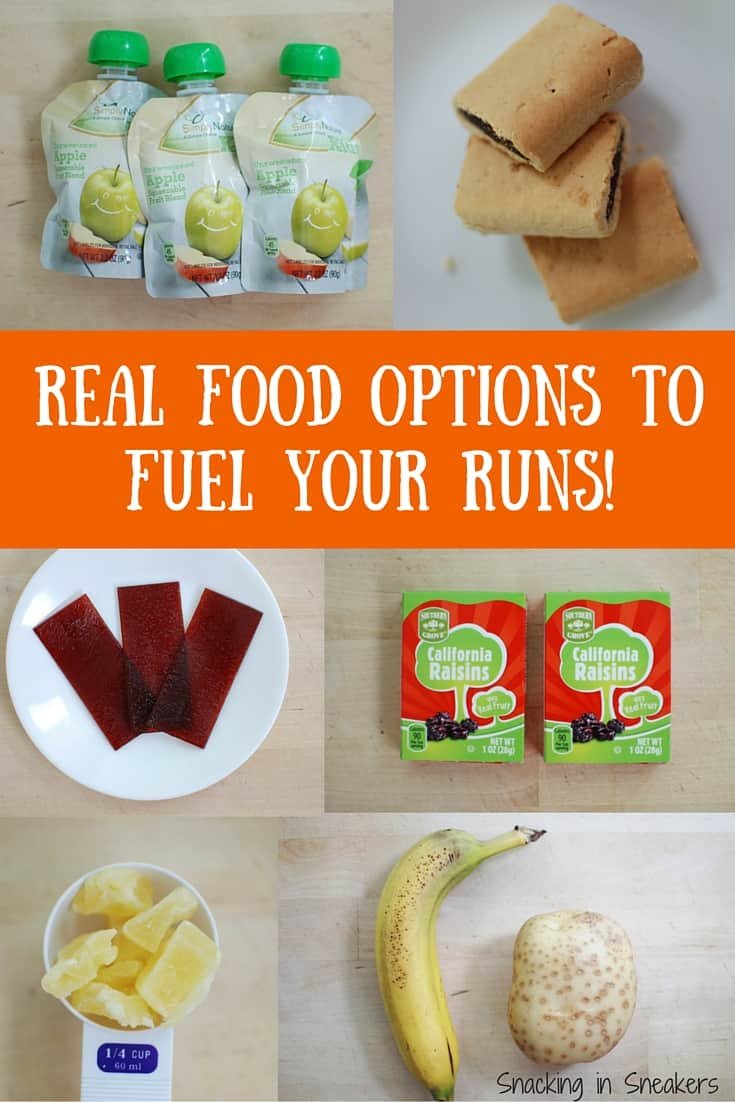
This image is property of www.snackinginsneakers.com.
Bananas
Benefits of Bananas for Runners
Bananas are a favorite among runners for good reason. They are packed with easily digestible carbohydrates, providing a quick and sustained source of energy. Bananas also contain potassium, which is important for maintaining proper muscle function and preventing cramps during your runs. Additionally, they are rich in vitamins, minerals, and natural sugars, making them an excellent choice for a pre or post-run snack.
Best Time to Eat Bananas
Bananas can be enjoyed both before and after your run. Eating a banana about 30 minutes before your run can provide a quick source of energy without weighing you down. Alternatively, having a banana after your run can help replenish glycogen stores and aid in muscle recovery. Feel free to experiment and find what works best for your body and preferences.
Ways to Incorporate Bananas into Your Run
There are various ways to include bananas into your running routine. If you don’t enjoy eating a whole banana, try slicing it and adding it to your oatmeal or Greek yogurt for a delicious and nutritious pre-run meal. Alternatively, you can blend a banana into a smoothie for a refreshing post-run recovery drink. If you prefer portable snacks, consider packing a banana with you for a quick, on-the-go energy boost during your run.
Oatmeal
Benefits of Oatmeal for Runners
Oatmeal is a versatile and nutritious food that can provide a multitude of benefits for runners. It is a complex carbohydrate, meaning it provides a slow and steady release of energy, perfect for sustained endurance during your runs. Oatmeal is also high in fiber, which aids in digestion and promotes feelings of fullness, preventing mid-run hunger pangs. Additionally, it contains vitamins, minerals, and antioxidants that support overall health.
Best Time to Eat Oatmeal
Oatmeal can be enjoyed as a pre-run meal or as a post-run recovery meal. Consuming oatmeal about 90 minutes to 2 hours before your run allows for proper digestion and provides sustained energy throughout your workout. If you prefer to eat a smaller meal closer to your run, opt for a smaller portion of oatmeal or choose instant oatmeal which can be easily digested. Having oatmeal after your run can aid in glycogen replenishment and muscle recovery.
Tips for Preparing Oatmeal for Running
Preparing your oatmeal in a way that suits your taste and nutritional needs is essential. Choose whole oats, such as rolled oats or steel-cut oats, which provide more fiber and nutrients compared to instant oatmeal packets. Consider adding toppings like fresh berries, sliced bananas, or a spoonful of nut butter for additional flavor and nutritional benefits. If you’re short on time, overnight oats can be a convenient option, as they can be prepared the night before and enjoyed cold or reheated in the morning.
This image is property of images.squarespace-cdn.com.
Berries
Benefits of Berries for Runners
Berries, including strawberries, blueberries, raspberries, and blackberries, are packed with antioxidants, vitamins, and minerals, making them a superb choice for runners. Antioxidants help combat inflammation and oxidative stress caused by exercise, potentially reducing muscle soreness and aiding in recovery. The natural sugars found in berries provide quick and easily digestible carbohydrates, perfect for a pre-run energy boost.
Best Time to Eat Berries
Berries can be enjoyed at any time of the day, depending on your preferences and training routine. Eating a handful of berries about 30 minutes before your run can provide a quick burst of energy. Alternatively, incorporating berries into your post-run meal or snack can help promote muscle recovery and boost your overall antioxidant intake. Enjoy them on their own, add them to smoothies, sprinkle them on top of Greek yogurt, or mix them into a bowl of oatmeal for a tasty and nutritious treat.
Creative Ways to Enjoy Berries during Your Run
If you prefer to fuel during your run with real food rather than energy gels or bars, berries can be a great option. Consider packing a small container of berries in your running belt or backpack for a refreshing and nutritious mid-run snack. They are easy to eat, contain natural sugars for a quick energy boost, and their high water content helps keep you hydrated. Just be sure to wash the berries thoroughly and store them at a suitable temperature to prevent spoilage.
Almonds
Benefits of Almonds for Runners
Almonds are an excellent source of healthy fats, protein, and fiber, making them a nutrient-dense snack for runners. The healthy fats found in almonds provide sustained energy, while the protein content supports muscle repair and recovery. Additionally, almonds are rich in vitamins, minerals, and antioxidants, contributing to overall health and well-being.
Best Time to Eat Almonds
Almonds can be enjoyed as a pre-run or post-run snack, as well as a mid-run energy booster. Consuming a handful of almonds about 30 minutes before your run provides a good source of energy and helps keep hunger at bay during your workout. After your run, enjoy a handful of almonds to aid in muscle recovery and provide a satisfying snack that will keep you fueled until your next meal. If you prefer to fuel mid-run, pack a small portion of almonds to enjoy during your exercise.
Tips for Incorporating Almonds into Your Run
Almonds can be enjoyed in various ways to suit your preferences and needs. For a quick and easy snack, simply grab a handful of raw almonds. Alternatively, you can sprinkle sliced almonds on top of your oatmeal or add them to a homemade energy bar or trail mix. If you’re feeling adventurous, consider making almond butter at home and spreading it on whole grain toast or rice cakes for a delicious and nutrient-packed pre-run or post-run snack.
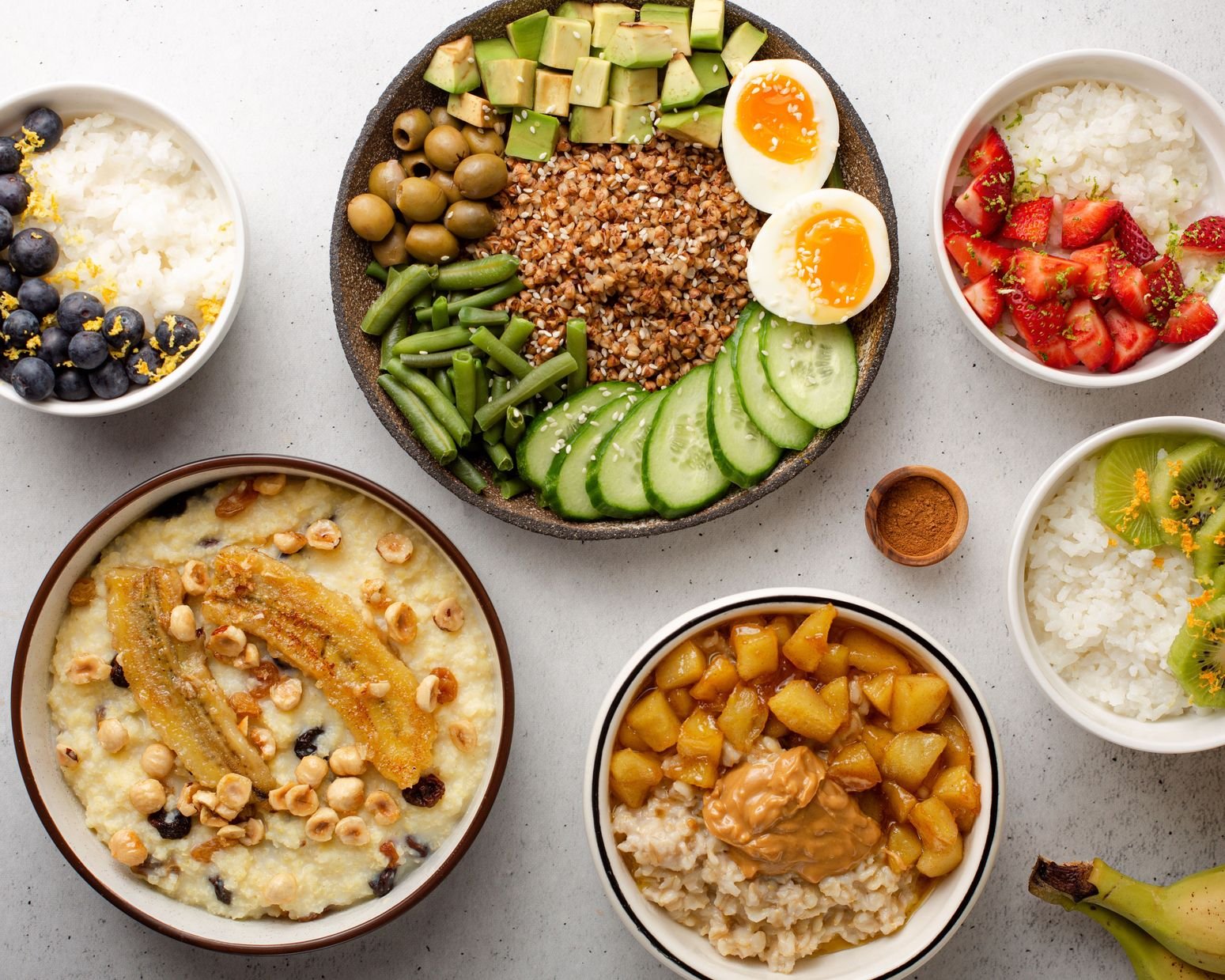
This image is property of hips.hearstapps.com.
Greek Yogurt
Benefits of Greek Yogurt for Runners
Greek yogurt is an excellent source of protein and calcium, making it a popular choice among runners. The high protein content supports muscle recovery and helps prevent muscle breakdown, essential for optimal performance. Greek yogurt also contains beneficial bacteria known as probiotics, which promote a healthy gut and aid in digestion. Additionally, it provides a good balance of carbohydrates and protein, making it an ideal post-run snack.
Best Time to Eat Greek Yogurt
Greek yogurt can be enjoyed at any time of the day, depending on your nutritional needs and preferences. Eating Greek yogurt as part of your pre-run meal, at least one to two hours before your run, can provide a sustained release of energy. As a post-run snack, Greek yogurt helps replenish glycogen stores and aids in muscle recovery. Experiment with incorporating Greek yogurt into your meals, snacks, or smoothies to see how it enhances your running performance.
Ways to Incorporate Greek Yogurt into Your Run
Greek yogurt is incredibly versatile and can be used in a variety of ways to enhance your running experience. Enjoy Greek yogurt on its own or mix in your favorite fruits, granola, or honey for added flavor and texture. You can also use Greek yogurt as a base for smoothies or protein shakes, providing a creamy and protein-packed drink to support your runs. Additionally, Greek yogurt can be frozen and blended into a delicious post-run treat, similar to ice cream.
Sweet Potatoes
Benefits of Sweet Potatoes for Runners
Sweet potatoes are a nutritional powerhouse and an excellent source of complex carbohydrates. They are rich in vitamins A, C, and E, as well as several B vitamins, which help convert food into energy and support overall health. Sweet potatoes also contain fiber, which aids in digestion and helps regulate blood sugar levels. Additionally, they provide a good source of potassium and magnesium, which are important for muscle function and recovery.
Best Time to Eat Sweet Potatoes
To maximize the benefits of sweet potatoes, include them as part of your pre-run meal or snack. Eating a sweet potato 2-3 hours before your run provides a sustained release of energy, ensuring you have enough fuel to power through your workout. Alternatively, sweet potatoes can be enjoyed as a post-run meal to replenish glycogen stores and aid in muscle recovery. Experiment with various cooking methods, such as baking, roasting, or steaming, to find your preferred way of incorporating sweet potatoes into your running routine.
Simple and Delicious Sweet Potato Recipes for Runners
There are countless ways to prepare sweet potatoes, allowing you to enjoy their nutritional benefits in a variety of tasty dishes. Consider baking sweet potato fries or wedges as a healthy alternative to regular French fries. You can also top a baked sweet potato with a dollop of Greek yogurt, sprinkle of cinnamon, or a drizzle of nut butter for a satisfying and nutrient-packed meal. Additionally, adding mashed sweet potatoes to muffins, pancakes, or smoothies can provide a natural and nutritious boost to your favorite recipes.
Incorporating these runner-friendly foods into your training and racing routine can enhance your performance, aid in recovery, and support overall health and well-being. Experiment with different foods and strategies to find what works best for your body and running goals. Remember to listen to your body, stay hydrated, and enjoy the process of fueling your runs with delicious and nutritious foods.
